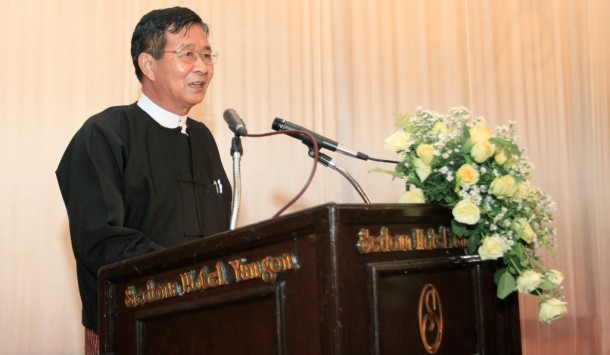RANGOON — A Burmese government peace delegation led by President’s Office Minister Aung Min is expected to arrive in Thailand on Friday for talks with ethnic armed groups, but has postponed a planned trip to the UK to study conflict resolution.
Hla Maung Shwe, a government peace broker close to Aung Min, told The Irrawaddy on Thursday that the delegation will meet with the Karenni National Progressive Party and other groups in the northern Thai city of Chiang Mai during its three-day stay in Thailand.
He also said that the trip to the UK, which Aung Min said in a recent interview with the Rangoon-based People’s Age journal would take place from Nov. 9-16, has been postponed because of the minister’s busy schedule. No new date has been set.
The purpose of that trip, Aung Min said, was to learn about how stakeholders in the decades-long conflict in Northern Ireland resolved their differences.
In another sign that Naypyidaw is increasingly seeking international support to help end more than half a century of internal conflict, Aung Min signed an agreement with the EU on Saturday that will allow it to send monitoring teams to Burma to observe the peace process if needed.
On the same day, Aung Min also met with leaders of ethnic political parties at the newly opened, EU-funded Myanmar Peace Center in Rangoon, where they discussed ethnic rights and federalism.
However, critics of the government-led peace efforts say that local people have not been properly consulted about plans for their future, and that many suspect the entire process is driven by the business interests of members of the government peacemaking team.
“So far, the Burmese delegation is only talking about business. With the help of some foreign NGOs, they are trying to convince Karen leaders that money will bring freedom,” said a member of the Italian aid group Popoli, which has been working in Karen State since 2001.
“Most of the so-called ‘peace brokers’ present at the discussions on the government side are businessmen,” he added, speaking on condition of anonymity.
For these critics, the first step toward peace is the withdrawal of government troops from areas under the control of ethnic armed groups, followed by political dialogue. Only then, they say, should economic talks commence.

















